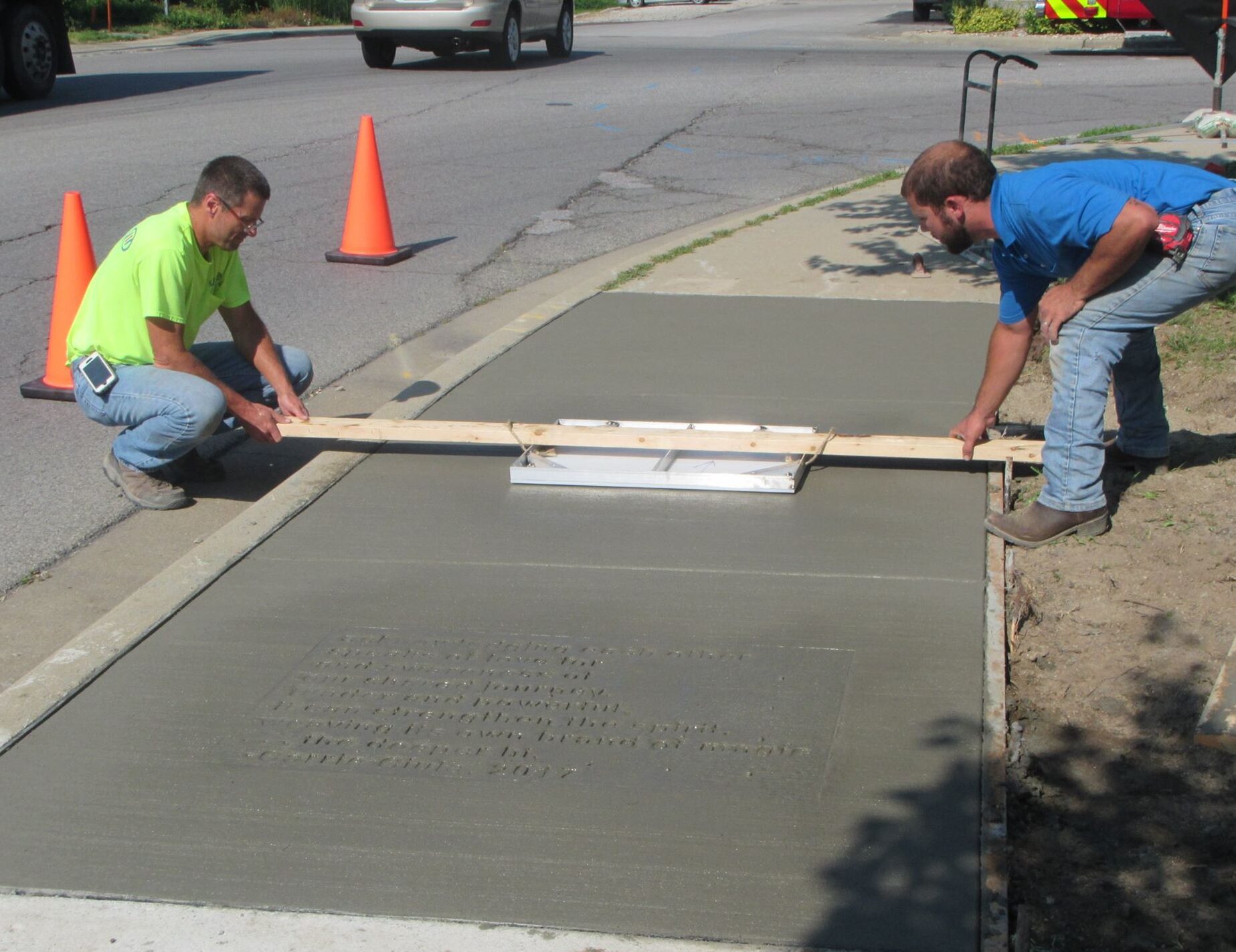Poetry really is everywhere—in love, in everyday language, in life lessons—and sidewalks across the Midwest are proving it.
Head down a given street in certain Midwestern cities and you’ll come across (and maybe even step on or roll over) poems.
Sidewalk poetry programs have risen across the region, stemming from an initiative started in St. Paul, Minnesota by prolific behavioral artist Marcus Young 楊墨 back in 2008. It was the first sidewalk poetry program in the country, inspired by sidewalk contractor stamps.
“If you can print that in the sidewalks, can you print other things like poems?” he remembers thinking. “It all goes back to our universal desire that when we see wet concrete, we want to put our finger in it and just mark that, ‘I was here.’”
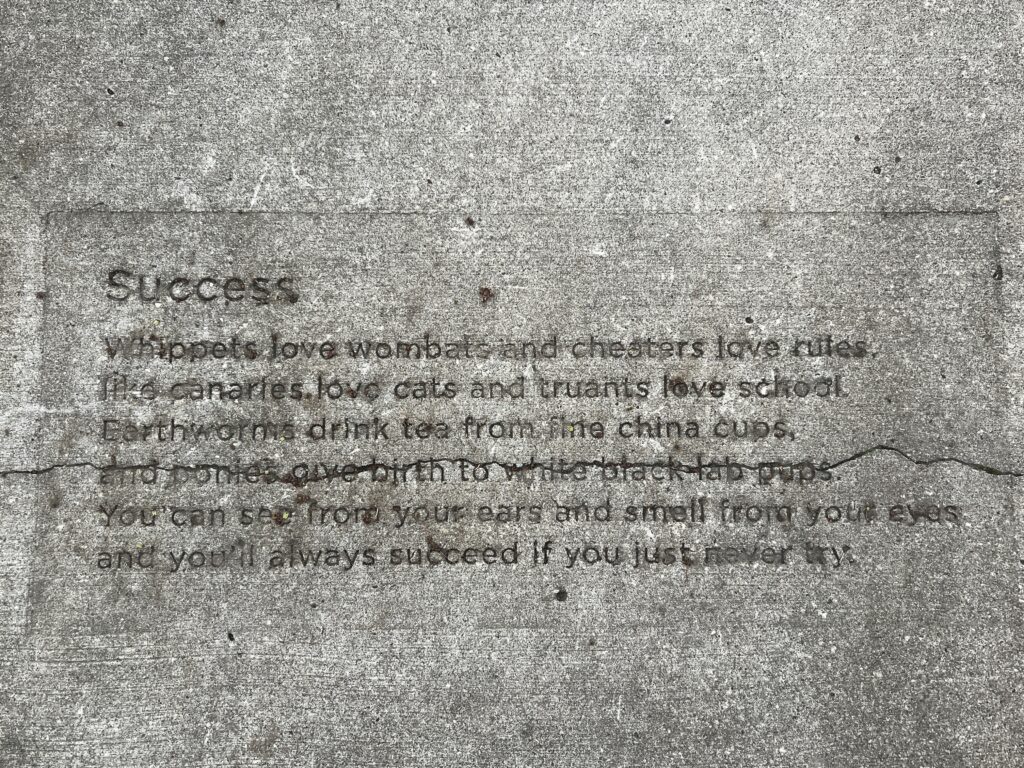
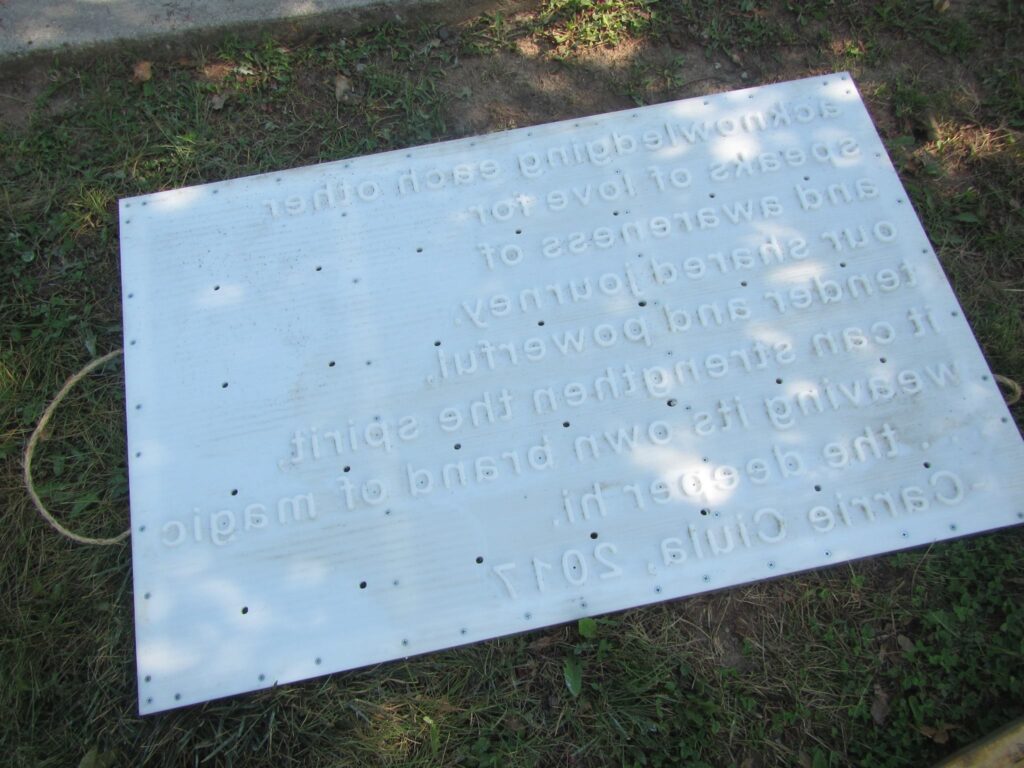
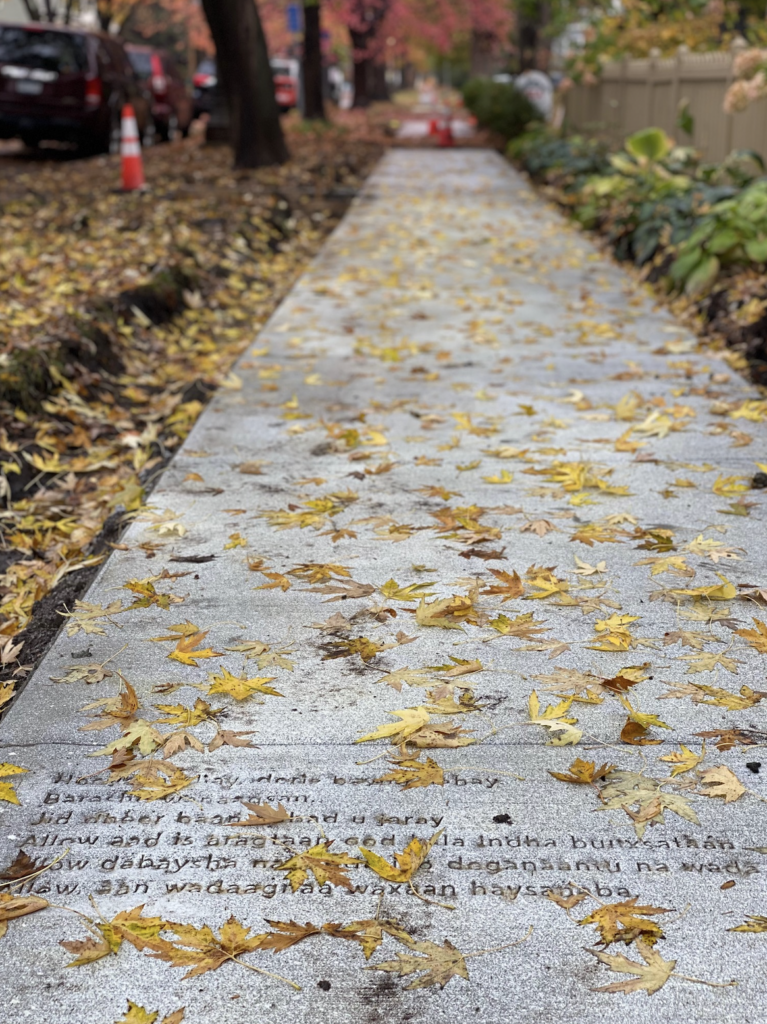
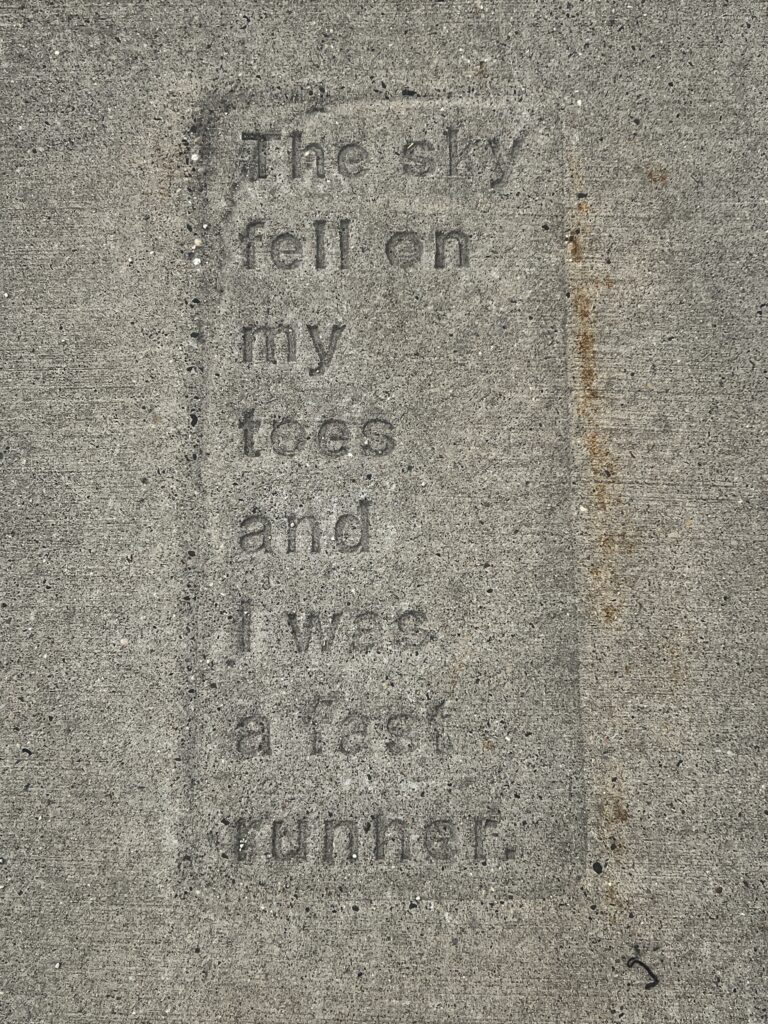
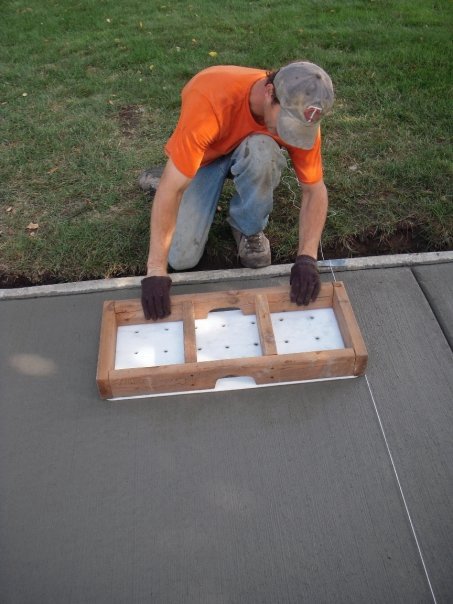
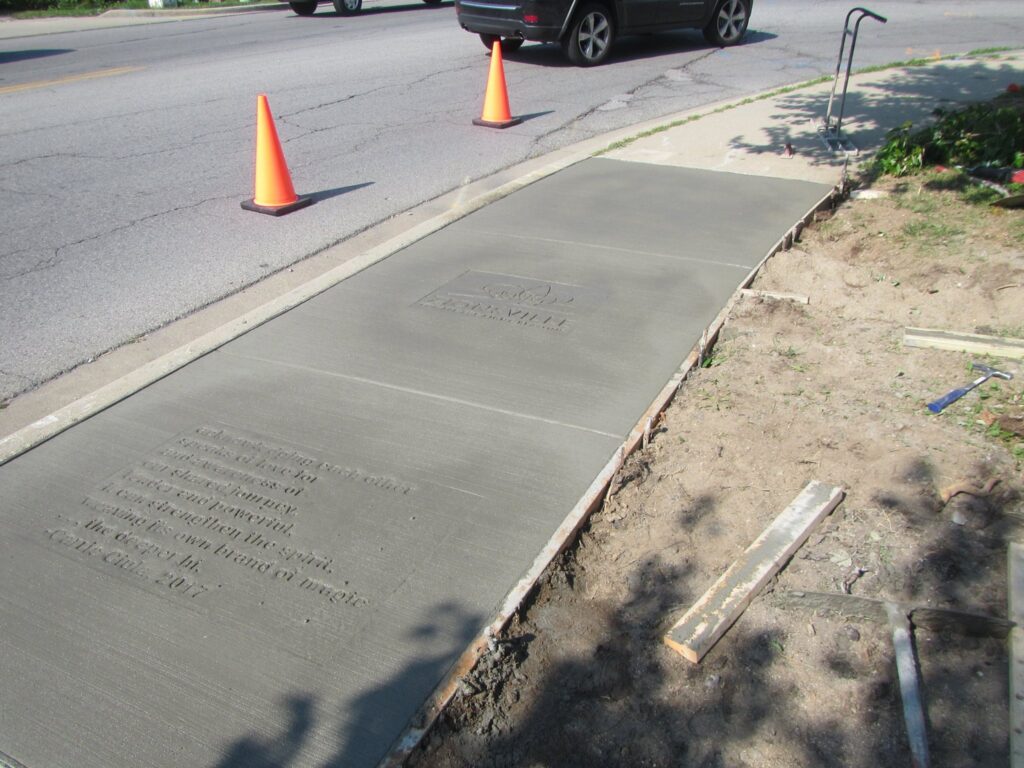
Public Art St. Paul’s Sidewalk Poetry “allows city residents to claim the sidewalks as their book pages” every spring when the public works department repairs damaged pavement.
The premise: Invite poets to send in short poems in Dakota, English, Hmong, Somali, and Spanish; choose a handful; create stamps; apply to wet concrete.
“It has changed a sidewalk repair program and turned it into a publishing force,” Young says.
Since the program began, it has stamped over 1,200 poems—enough for everyone living in St. Paul to walk to a sidewalk poem in under 10 minutes.
KATIE CHICQUETTE, 2025 WINNER OF THE APPLETON, WISCONSIN CONTEST“Though I worry
that everything I held true
and firm as rock will crumble
under my feet – I can’t
forget: no paper, pen, or marble
engraved can change the fact
of my heart, the center
of my spirit, the truth of me–
none of this can be erased”
A four-hour drive east lands you in Appleton, Wisconsin, with its own program inspired by St. Paul’s. The city announced five poetic winners just last week, after a community panel narrowed down submissions from nearly 100.
“It’s a beautiful art form,” says librarian Peter Kotarba, who works with Appleton’s sidewalk poetry program. “Poetry, especially in sidewalk poetry, is permission. It’s giving people permission to feel maybe what’s in that poem, but also permission to find their own avenue of expression.”
Kotarba says he only sees programs like these growing. He’s planning to add QR codes on signs near the poems so passersby can hear audio recordings from the authors. And he recently fielded a call from a small city in northern California looking to start a similar effort.
“It is an opportunity for the reader to step into someone else’s world,” or even just another state, he says, “to see reflections of themselves or others around them.”
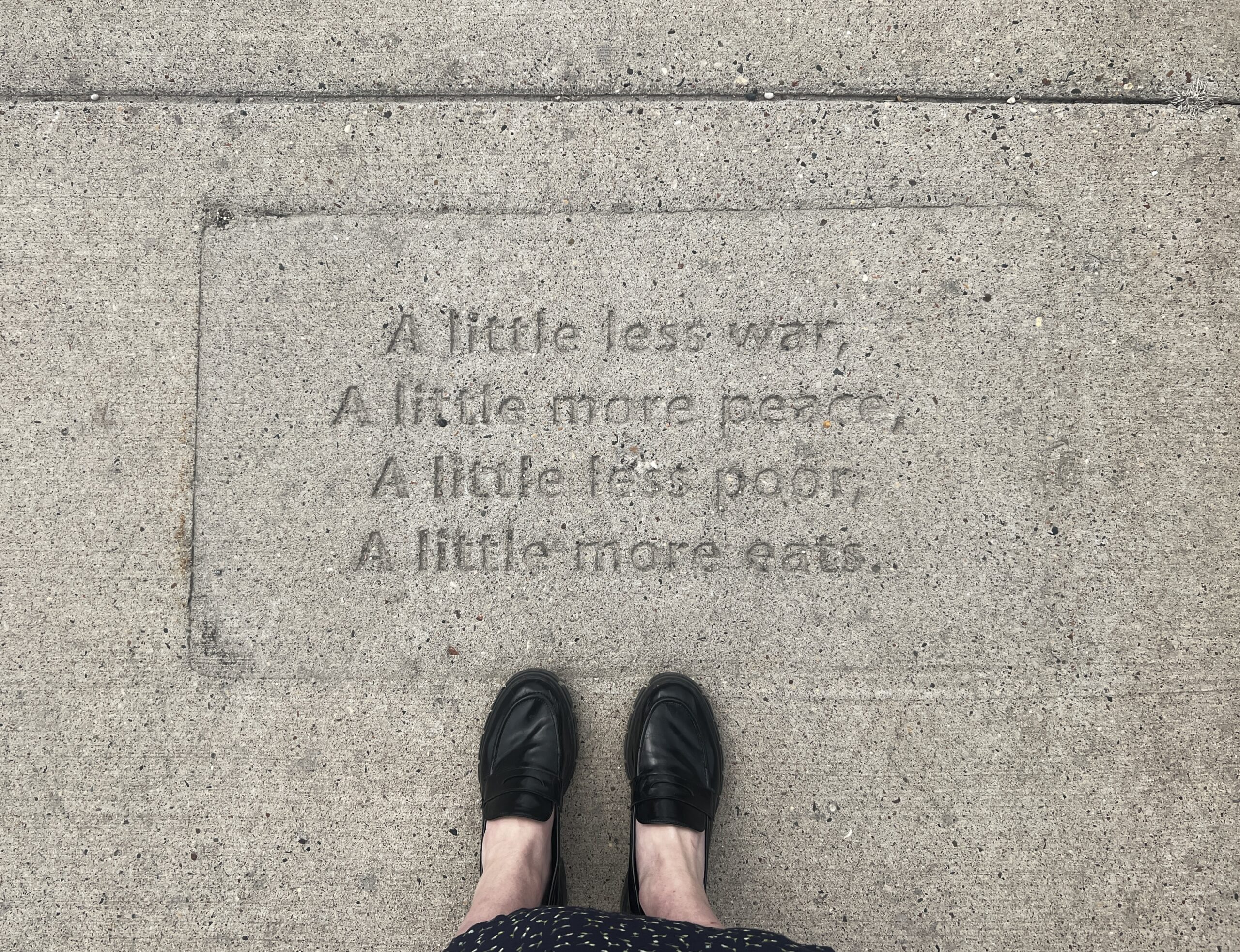
Young says footpaths can be—and are—more than safe transportation venues. He wanted to instill “elevated, beguiling moments” in someone’s dog-walk or commute.
“Bring a bit of reassurance, bring a bit of comfort, a bit of delight and mystery to your life,” Young says. “Your life is, yes, this ordinary moment, but it’s also this extraordinary moment.”
MALAVIKA SREEHARI, 2024 WINNER OF THE ZIONSVILLE, INDIANA CONTEST“In bonds of trust,
our spirits blend.
In friendship’s embrace,
our hearts mend.
In laughter’s echo, truly kind,
forever cherished, intertwined.”
